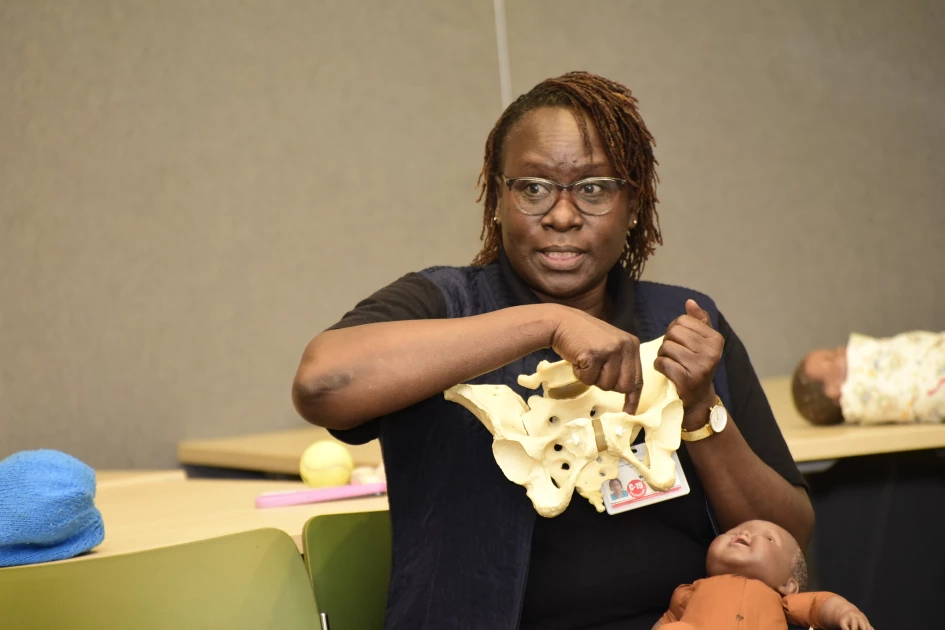Motherhood’s hidden struggles: Why mental health support matters

Irene Wesonga, a Lamaze instructor.

Audio By Vocalize
Take childbirth itself. Labour is often described as one of the most painful human experiences. Yet, as one lactation specialist and Lamaze instructor put it, it’s “pain with a purpose.” They reminded mothers-to-be that labour pain is unlike illness or injury; it’s a natural, intermittent process designed to bring new life into the world. Preparation and support, they said, can make all the difference. Having a loved one present, allowing the body to follow its instincts, and weighing interventions carefully were some of the practical takeaways.
These were the conversations held at a session for mothers organised by the Aga Khan University Hospital, which brought together childbirth educators, mental health specialists, and mothers to openly discuss the less-spoken-about challenges of motherhood.
Irene Wesonga, a Lamaze instructor, broke down the stages of labour—early, active, and transition—while encouraging expectant mothers to trust their bodies and only consider interventions when necessary. She emphasized the importance of a realistic birth plan: “Where will I deliver? How will I get there? How will I pay?” adding that mothers should always have a Plan B, to take into consideration unexpected events, such as the baby coming earlier than expected.
When it came to feeding, Naomi Mwangi, a lactation specialist and childbirth educator, stressed the significance of the “golden hour” after birth, advising that breastfeeding initiated within the first hour greatly improves the chances of success and reduces resorting to using baby formula.
Beyond childbirth, the session also explored ways mothers can nurture their emotional health. Certified Emotional Freedom Technique (EFT) practitioner Munira Rahimtulla demonstrated safe and gentle movements such as chair yoga, hip rolls, and squats, as well as techniques to help mothers release stress and restore calm.
Perhaps the most candid exchanges came during a panel where mothers shared lived experiences while experts shared advice on moving from overwhelm to empowerment as a mother.
Prof. Lukoye Atwoli, the Dean of the Aga Khan University’s Medical College in East Africa, reminded mothers that while “baby blues” are common, postpartum depression is not and must never be dismissed. Obstetrician-gynecologist Dr. Felix Oindi encouraged women to speak up when feeling overwhelmed, saying, “Help exists; don’t suffer in silence.”
Personal testimonies reinforced these expert voices. Ashley Muteti urged mothers to be intentional about self-care: “Even taking an hour to walk and listen to music can help reset your mind. Judith Nyambura, popularly known by her stage name, Avril, spoke about the importance of support systems, adding, “A good nanny can be part of that support.”
The central theme echoed throughout the day: mothers must prioritize themselves. As Atwoli put it, “You are your first caregiver. Only by taking care of yourself can you take care of others.”
The session, titled Motherhood and Mental Health: From Overwhelmed to Empowered Mother, offered more than just practical tips. It served as a reminder that motherhood should not be a solitary struggle, and that mental health support is essential, not optional, for every mother and that professional support helps all the way from pregnancy to the postpartum journey.


Leave a Comment